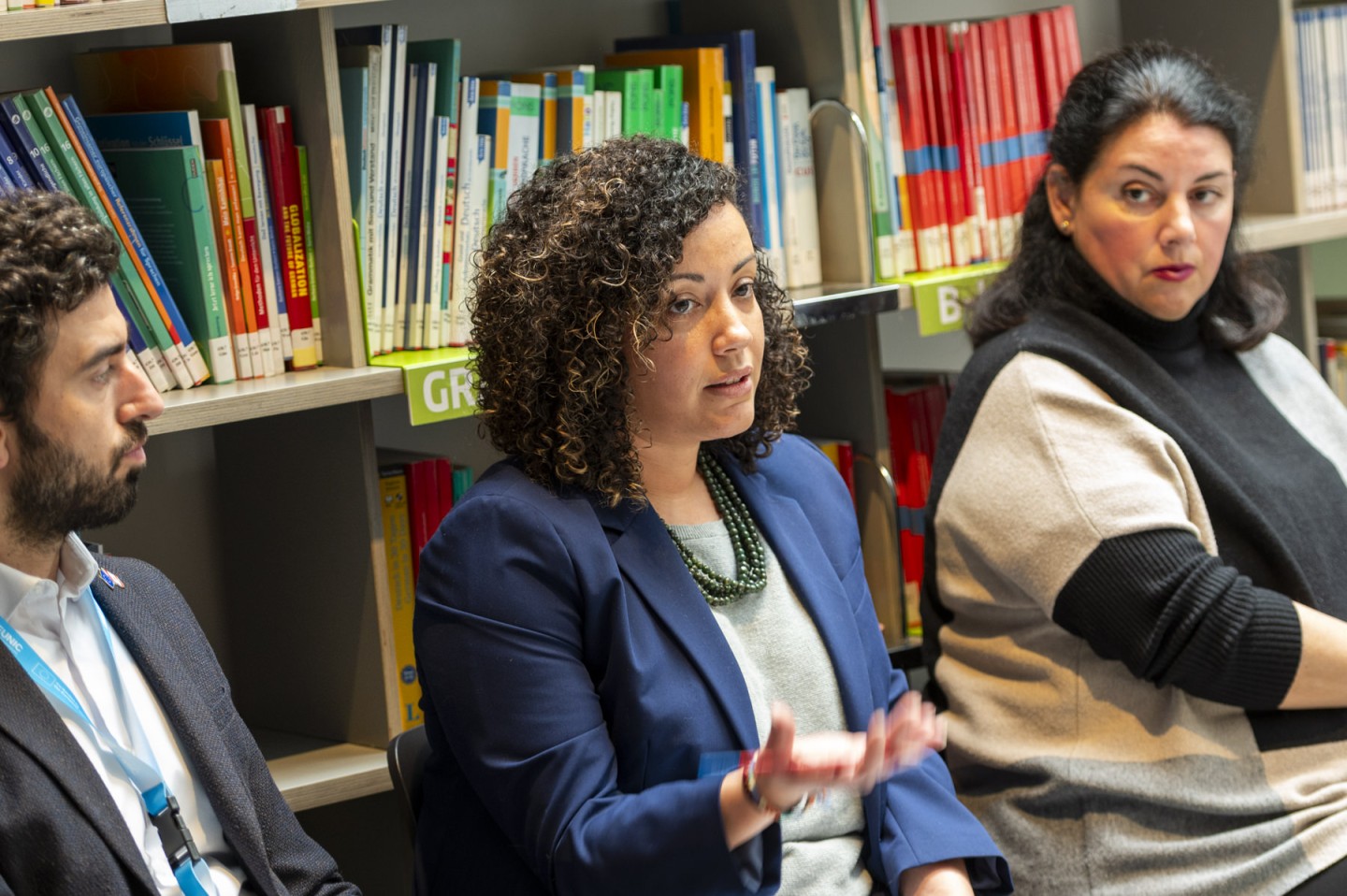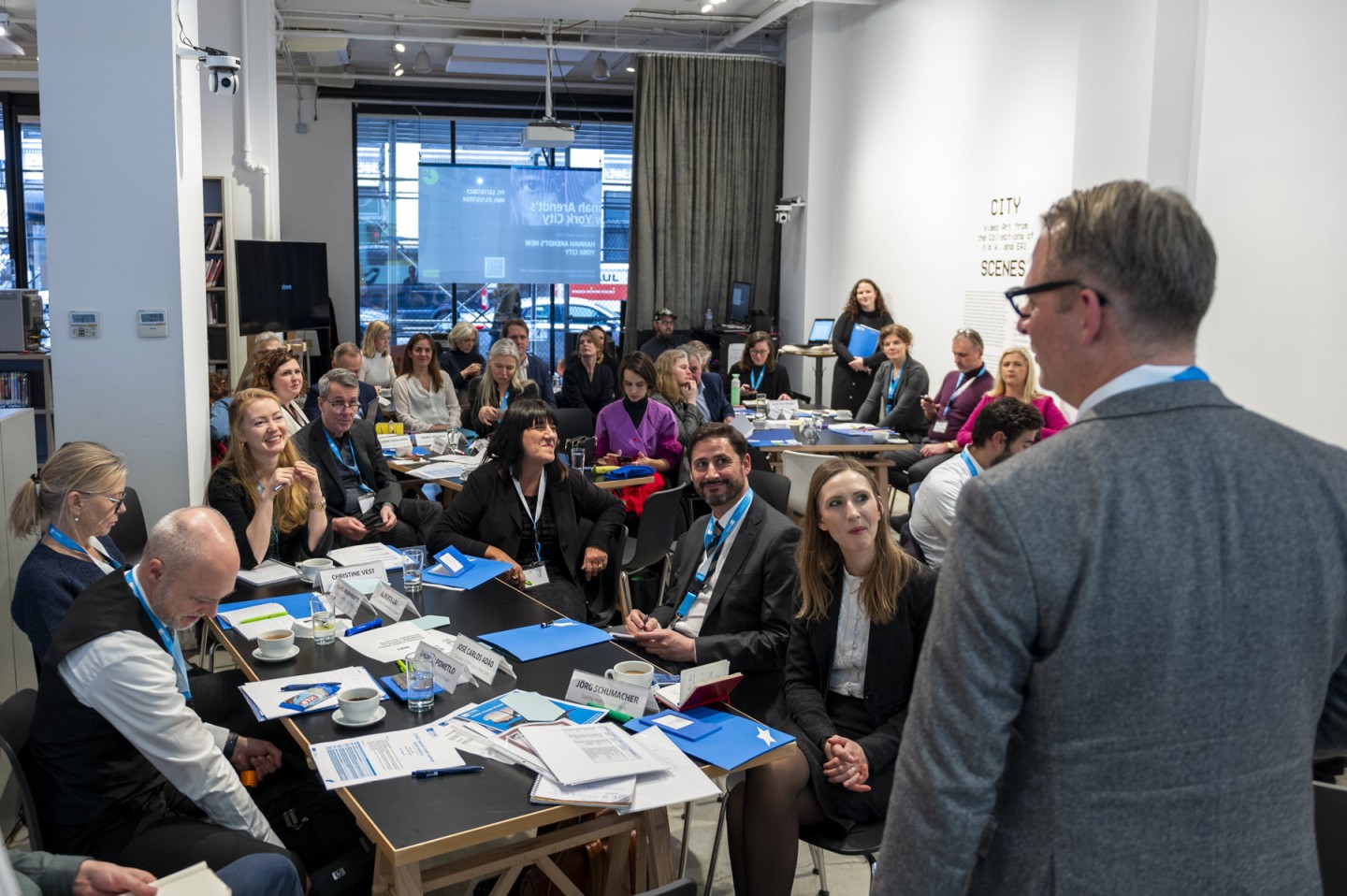




Regional North America Cluster Seminar in New York
On 25 and 26 January 2024, colleagues from all seven clusters in North America met for the regional cluster seminar in New York, USA.





Co-organised with EUNIC New York and hosted at the Goethe-Institut New York, the EUNIC regional seminar brought together member colleagues from clusters in the US and Canada: Chicago, New York, San Francisco - Bay Area, Washington, D.C., Montréal, Ottawa and Toronto.
The seminar also involved colleagues from the EU Delegations to the US and Canada, located in Washington D.C. and Ottawa, EU Delegation to the UN in New York, as well as external experts representing the Canada Council for the Arts and the National Endowment for the Arts of the US, as well as and key local cultural and civil society stakeholders based in New York.
During two days, seminar participants had the chance to explore recent developments and opportunities to develop together as members of the network and in partnership with the EU, share good practices and explore solutions to some of the challenges of working collaboratively as cluster in North America and define common topics of interest as well and opportunties for future collaboration.
These peer-to-peer exchanges were complemented by an impulse from Ascala Sisk, Senior Deputy Chair, National Endowment for the Arts of the US (NEA), outlining the federal agency's current strategic focus including investment in research to support policies and open calls to artistic associations calls to artistic associations as well as the impact of covid on the broader arts landscape of the USA. The NEA also outlined their ambitions to mainstream cultural partnerships and opportunities across policy areas such as transport and housing. This was followed by a group discussion on the possibilities for collaborations at the national level.
A further came from Simon Brault, former CEO of the Canada Council for the Arts. Besides giving input on the way the Council works and its recent strategic focus, Simon emphasized the importance for arts and cultural organisations to innovate on ways how leadership and programming are structured in theface of the current era of polycrisis fuelled by post-covid recovery and current geopolitical tensions. Approaches to expanding the definition and achievement of relevance in the arts and cultural sector were shared as were ideas to support the professional development of a new generation of younger and more diverse arts leaders in Canada, in dialogue and exchange with other global regions.
Presentations from representatives of EU Delegations to the US and Canada, including colleagues responsible for the Foreign Policy Instrument allowed to open the floor to discussions about EUNIC's partnership with the EU highlighting the importance of coordination, planning and information sharing particularly in countries where there is more than one cluster per country as in the case of the US and Canada.
Additional input also included a presentation from Matt Govey (Tamizdat NGO), legal expert on the evolving context of artists' visas into the USA followed by a Q&A.
Finally, the seminar was also an opportunity to learn about some of the recent projects implemented by clusters and about ongoing and upcoming funding opportunities such as European Spaces for Culture and the EUNIC Cluster Fund including presentations from EUNIC New York on some of their recent flagship initiatives and approaches to building a strong collaborative dynamic amongst members of the cluster.
